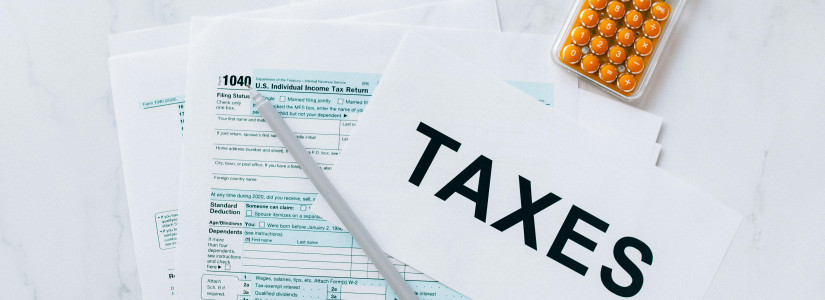Tesla Allegedly Produced Model X and Model S Cars with Suspension Defects
Elon Musk has now surpassed Bill Gates as the second-richest man in America. Tesla's stock is soaring, and its investors have made a lot of money. However, just recently, on November 20, 2020, a new lawsuit just landed on the executive's desk.
Headquartered at 3500 Deer Creek Road in Palo Alto, California, Tesla allegedly made a design mistake and avoided taking responsibility. On August 20, 2019, Plaintiff Zachery Williams took possession of a previously owned Model S Tesla with 54,492 miles on the odometer. He began to have suspension difficulties with the automobile that threatened his life.
The front and back-end suspension components of the 2013 to 2018 Model X and Model S electric vehicles are faulty, causing the driver to lose control of the car. According to the lawsuit, the wheel of the vehicle completely separated from the car in certain situations.
The engineers at Tesla have released new software with a separate recall notice. The marketing team is now promoting a positive image of Tesla manufacturing by containing the damaging public relations debacle.
Eight Violations of Consumer Protections and California Law
The attorneys allege that Tesla violated several consumer laws from which came the following causes of action:
- Violated the Magnuson-Mass Warranty Act
- Violated the California Consumer Legal Remedies Act
- Violated the California False Advertising Law
- Violated the California Unfair Competition Law
- Breach of Express Warranty
- Breach of Implied Warranty of Merchantability
- Breach of Common Law Warranty
- Breach of Fraudulent Concealment for California Law
Driver Complaints and Violations
Drivers have spoken out against Tesla's deceptive workmanship. Plaintiffs have sued Tesla for out-of-control acceleration for its Model 3 vehicles, and another driver drove off the lot with his brand-new Model Y Tesla just to have the roof blown off hours after he left the showroom.
There have been numerous consumer complaints concerning the suspension defects and shoddy workmanship. Consumer have been left hanging, having to pay for the expensive repair costs themselves.
- Morgan Hill, California: On November 24, 2019, the consumer's front suspension made loud sounds and rattles when in acceleration. Consumer informed Tesla, but there was not bona fide fix. This occurred right before the warranty expired.
- Pleasanton, California: On December 14, 2019, the owner was driving at 19 miles per hour. The driver had to make a complete stop when, suddenly, there was a loud bang. Upon further investigation, the driver's side control arm had broken off. The vehicle was no longer operable and had to be towed into a Tesla Service Center.
- Auburn, Alabama: On August 4, 2020, a consumer's vehicle made clucky sounds from the front wheel when driving at low speeds. The electric vehicle had less than 25,000 miles. Tesla said that the trouble was from the front suspension arms. Estimated repairs were not available at the time.
- Flushing, New York: On June 29, 2020, the bolt brake broke away from the thread. The mechanic marked the bolt with paint. The bolt was there to keep the frame and subframe securely attached.
Suspension Defects in the Model S and the Model X
The automobiles were produced from September 17, 2013, to October 15, 2018. The allegations state that the suspension defect poses a danger to the public, and the Chinese manufactures knew of the defect and issued a recall notice for their country.
Tesla went to extra lengths to avoid having to recall their vehicles due to the immense costs. Owners of the car had their safety threatened from the vehicle defects, and then, Tesla tried to blow-off the defects as a known issue by covering it up.
There were issues with the control arm, front, and rear-end suspension components. The material defects would cause the wheel to detach away from the suspension components, making the owner lose control of the vehicle and drive off the road.
Supposedly, the newer models of Tesla vehicles have not been affected. Mechanics question whether this is an on-going issue or if Tesla's engineers have since fixed the problem.
In response, Tesla has blamed the owners of the vehicles for the suspension issues. They were negligent in their on-road driving habits and the operation of their cars. Tesla insists that the allegations are unfounded & the grievances are the fault of the drivers.
According to the complaint, "Tesla is gambling with the lives and safety of hundreds and thousands of additional drivers and passengers whose vehicles' suspension parts are at an imminent risk of failure."
Furthermore, Tesla tried to conceal the defect by making consumers sign non-disclosure agreements, and the company used technical service bulletins to hide the mechanical imperfections.
Settlement
McCune Wright Arevalo, LLP, represents Zachery Williams and other plaintiffs for the class-action lawsuit filed on November 20, 2020, in the United States District Court for the Northern District of California Oakland Division. The case number is 4:20-CV-08208.
The attorneys for the plaintiffs seek declaratory and injunctive relief, including attorney fees. In addition to a jury trial, the plaintiffs desire that Tesla make reasonable accommodations for recalls, warranties, and pay repair costs for class members.












